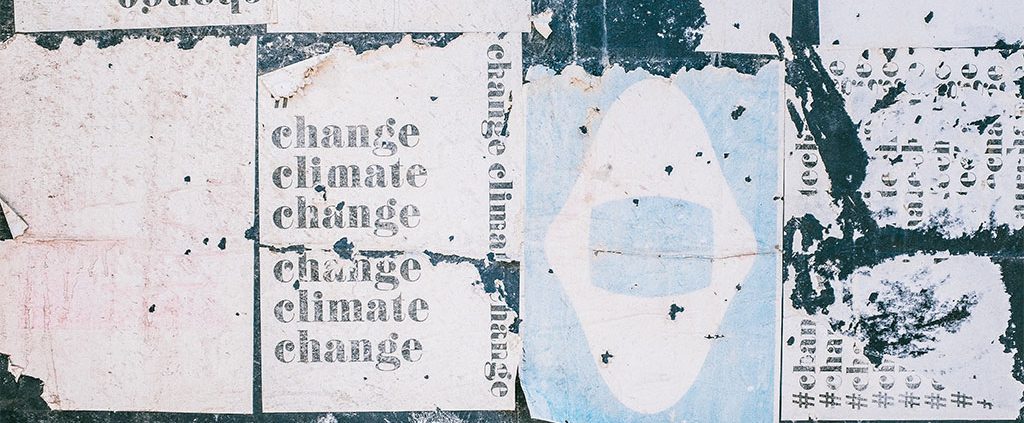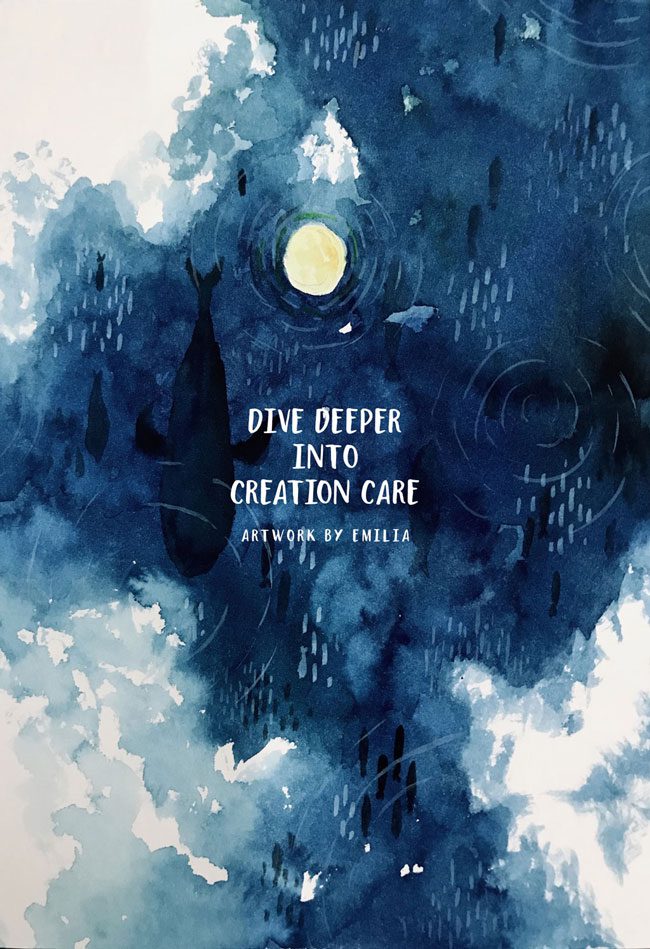Climate Change: Where Is God In All Of This?
Written by Shilpita Matthews, UK
Growing up, I always knew climate change was real. It wasn’t because I watched the news, but because I saw, first-hand, how damaging natural disasters can be. After the 2004 Asian tsunami in Sri Lanka, I remember travelling with my father, a charity worker, to the north of the country which was controlled by a terrorist faction. I was nine years old.
Not only were the people there already suffering amid the country’s civil war, they were now also the worst affected by the tsunami. Their houses were completely demolished. Numerous families and children even younger than me were living in temporary shelters, growing up dependent on the kindness of aid workers. The destruction, both of nature and entire societies, made me wonder why God had allowed such suffering to occur.
Few years later, my father had relocated our family to Thailand, and I was caught up in the devastating 2011 floods in Bangkok. For the first time, I noticed the heart-breaking inequality that these disasters surfaced. While the rest of the country suffered, us Bangkokians sat behind protected flood gates, maintaining a false sense of normalcy in our lives. The immediate inconveniences that I faced, like stock-piling or the inability to commute, were incomparable to the livelihoods that people lost.
As I educated myself later in life, I saw how these weather events could lead to complex social and political crises. The severe drought in the Middle East, for instance, was a key driver of the Arab Spring in 2011. Those political protests then led to the Syrian crisis. In 2015, when I visited my mother in Amman, I learnt that over 10 per cent of the Jordanian population consisted of Syrian refugees. In other words, an apathy towards the environment was inadvertently hurting God’s people.
Remembering the People
Whether as extreme weather events, or water and food shortages, climate impacts were hurting the poor. My personal relationship with God convinced me that He cared for those who were suffering, as He does in all moments of our pain. But I did question, where was God in all of this? And how could we, as Christians, respond to the changing climate in a godly way?
Grieved by the pain I’d witnessed, I was motivated to dig deeper for answers. I sought to understand what God’s Word had to say about the environment, how climate change worked, and the role I could play to address this through studies and work.
From His loving act of creation (Genesis 1), to the rest He ordained for His land and people in Jubilee years (Leviticus 25), and, ultimately, the reconciliation of all things on heaven and earth under Christ (Colossians 1:15–20), the Bible is full of examples of God’s love for creation. It also reveals His plan to redeem both us and the planet.
These truths helped me see that seeking climate justice was not just restricted to environmental stewardship. It was also about giving the hungry something to eat, the thirsty something to drink and inviting strangers in (Matthew 25:35). Nowhere is this clearer than in the case of climate refugees. In 2019 alone, 5.1 million people were living in displacement as a result of natural disasters. It’s a clear reminder that being involved in climate justice isn’t just about saving our earth—but one way for us to live out the greatest command to “Love our neighbor as ourselves” (Mark 12:31). And by loving those most impacted by climate change, following the way of Jesus.
Putting Faith into Action
I realized that faith and environment did not operate in silos. The more I began to see the theological link between the two, the more I was convicted that God was calling us, His children, to respond to the climate change issues with our actions, time, and resources. Whether it be through careers, volunteering, giving or daily lifestyles, God is inviting us to partake in His reconciliatory work.
Whilst I am still navigating biblical complexities and often struggle to understand the enormity of climate change, I am trying to live out my convictions with practical steps, starting with: reducing my use of plastic bags, giving up meat for Lent, and prioritizing public transport. I’ve also voted for leaders who are committed to climate action and am examining the energy supplier I use and evaluating my bank’s fossil-fuel investment policies.
My background in environmental economics has helped me apply what I’ve learned at work through climate adaptation research and climate strategy consulting. I’ve also had the opportunity to co-found a network across the UK, where I currently live, for young Christians seeking climate justice in our local communities. We create ‘green groups’ at church, universities, or workplaces that advocate for environmentally friendly action, like switching energy suppliers, registering as an eco-church, or calling for fossil-fuel divestment. We give talks at churches and workplaces, and some of us are joining calls for a ‘climate Sunday’ in the UK—a church service dedicated to discussing climate initiatives as the UK hosts COP26, the global climate change conference next year.
As more individuals are becoming convicted about reducing their carbon footprint, I’ve seen this begin to influence policies on a societal level. For some countries, this financial crisis is a time to ‘build back better’, and create a ‘new normal’ that better supports the environment. From increasing pedestrian access in cities, to increasing our work-from-home days, I’m hoping that the world post-coronavirus could look a lot greener than it was before.
Holding Fast to Eternal Hope
Yet, on some days, I wonder whether it is all worth it? Are my small efforts going to make any difference? In the process of climate solving, are we forgetting to repent of our sins, the materialistic lifestyles that got us in this mess in the first place? Amid these never-ending questions, I always come back to the eternal hope that awaits us.
Having an eternal hope in Christ doesn’t mean living recklessly, thinking that we’ll leave the earth for heaven one day. Rather, the Word tells us that our eternal hope is linked to the planet we live in: we are to be spending eternity in our renewed and restored world! Caring for the planet now is to invest in the future that is to come, the new heaven and new earth (Revelation 21) where all things in our broken planet will be renewed.
As I pore through the Scriptures, I’ve seen that God is not just concerned about people, but also the world, which He loves (John 3:16). His heart and ongoing work in reconciling all things on earth and heaven to Himself (Colossians 1:15–20). It is a comfort to know that He weeps alongside us over the destruction of His world, and have the reassurance of His grace and restoration at the same time. It motivates me to keep faithfully taking tiny steps towards climate justice, regardless of the outcome.
As I partake in this reconciliatory work, He has shown me not to despise these small steps. Climate justice initiatives undertaken by Christians can be a surprising and powerful form of evangelism. A 2020 poll by the American Psychological Association finds, nearly half of 18- to 34-year-olds in the US say that stress about climate change affects their lives. Yet, in these times of grief, a Christian approach to climate change has helped those who are grappling with existential fears find comfort from the One who has the power to calm all storms (Mark 4:35–41). Faith has helped lament in a godly way without having hopeless climate despair.
We all long to witness that restored relationship with our Creator and His creation. Stewarding the planet and seeking justice in what we say and do are ways of glimpsing the promise of the glory that is to come.








Trackbacks & Pingbacks
[…] New blogpost on faith and climate change for YMI. The entire article can be found here! […]
Leave a Reply
Want to join the discussion?Feel free to contribute!